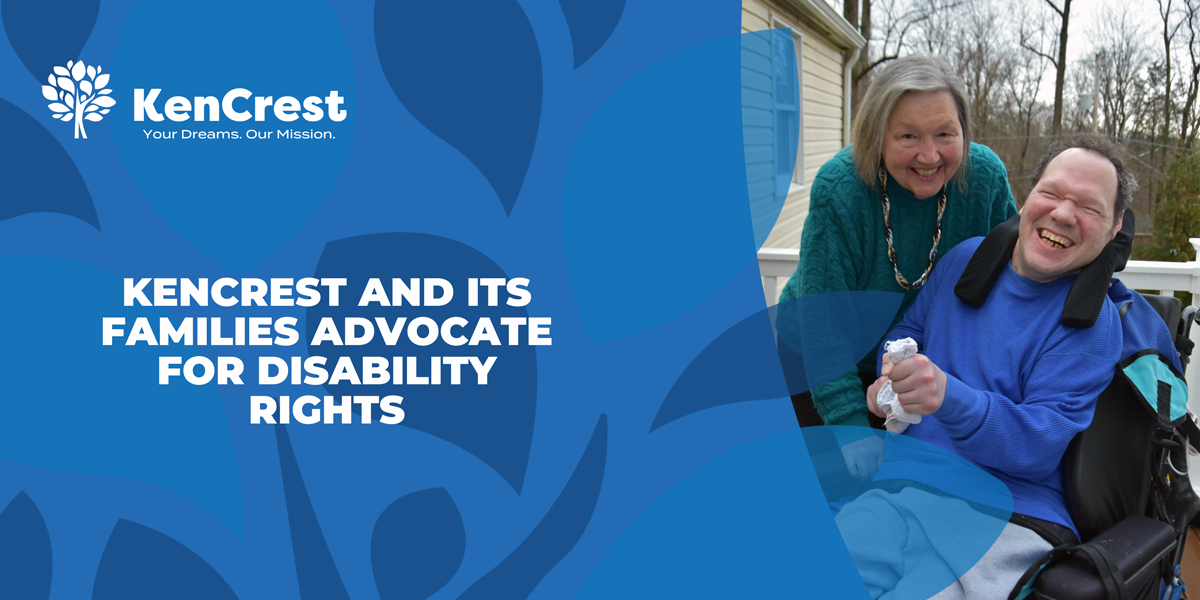
Maryann Amici has been advocating with her son Lou, who was born with a disability—Spastic Quadriplegia—since he was born in 1971.
By Sydney Kerelo
In 1971, Maryann and her husband, Louis Amici, welcomed twins, a boy and a girl, into the world. Little did they know the journey that awaited their son Lou, who was born with Spastic Quadriplegia—a disability that is a form of Cerebral Palsy that affects all four limbs, as well as the torso and facial muscles. As a result, Lou is nonverbal and uses a wheelchair. However, this does not mean he should be denied the same rights and experiences as anyone else.
As a child, Lou faced challenges accessing education, unlike his twin sister. He was not permitted to attend school until the age of beginners which was age six, and only due to the 1975 Education for All Handicapped Children Act—now known as the Individuals with Disabilities Education Act (IDEA). The IDEA website states that in 1970, only one in five children with disabilities were educated in U.S. schools, with many states having laws that excluded certain students, such as those who were deaf, blind, emotionally disturbed, or had an intellectual disability. Today, over 66 percent of children with disabilities are in general education classrooms, and early intervention services are provided to more than 144,000 infants and toddlers with disabilities.
This progress was made possible by parents like Maryann and Louis Amici, who tirelessly advocated for their son's rights.
"Advocacy is crucial, and it must begin with families," says Maryann. "Without their support, who would fight for their rights? Who would ensure they receive the same accommodations and access to resources as everyone else? Having that family connection and someone looking out for you is essential."
"There are self-advocates with disabilities who can speak for themselves," she adds. "But many cannot or do not have the voice to be heard."
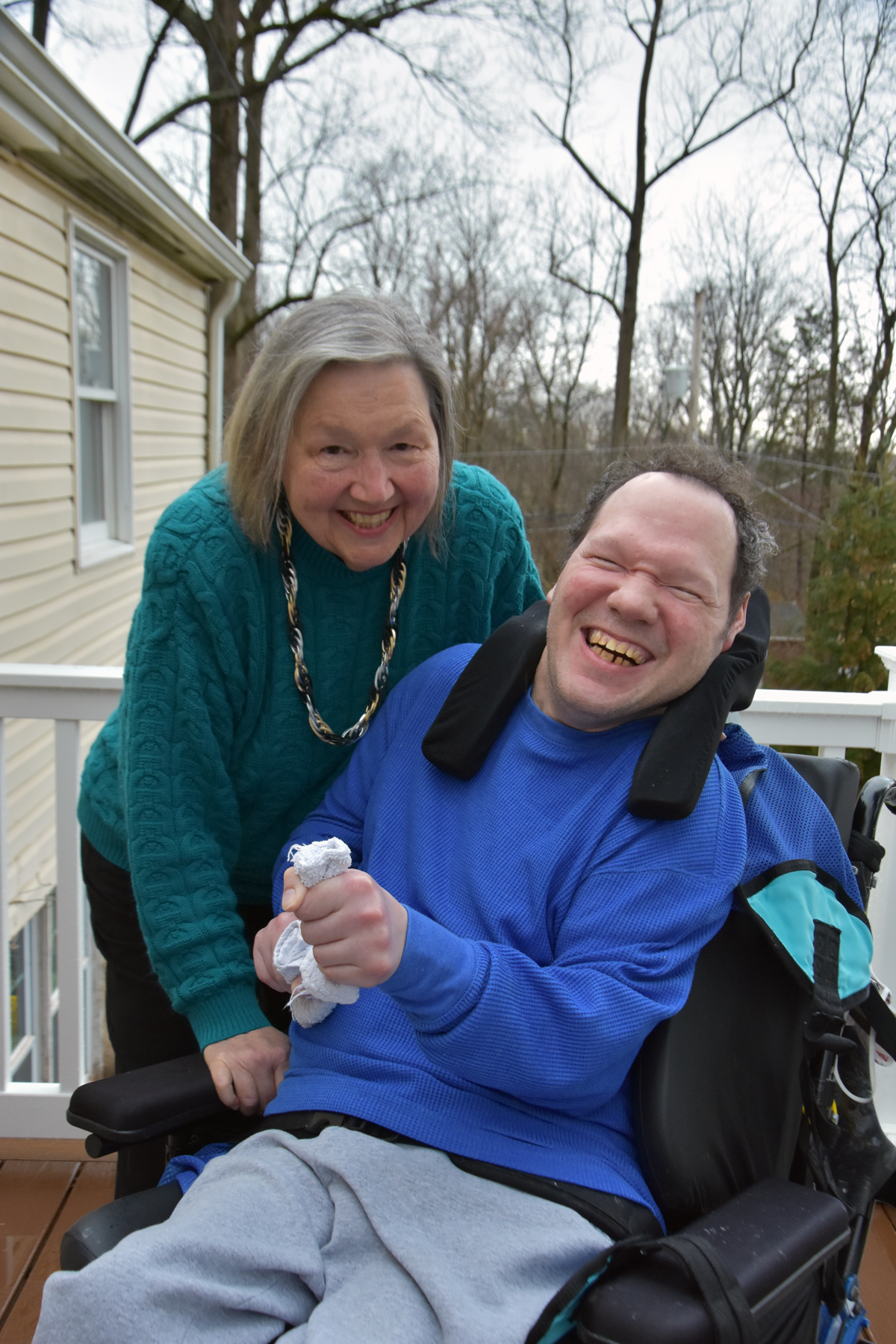
"When you talk about living a typical life, that's it. It should not be any different for anyone. Advocacy is essential to ensure necessary accommodations are made. I'm 75 years old now, and I'm still advocating."
Maryann Amici
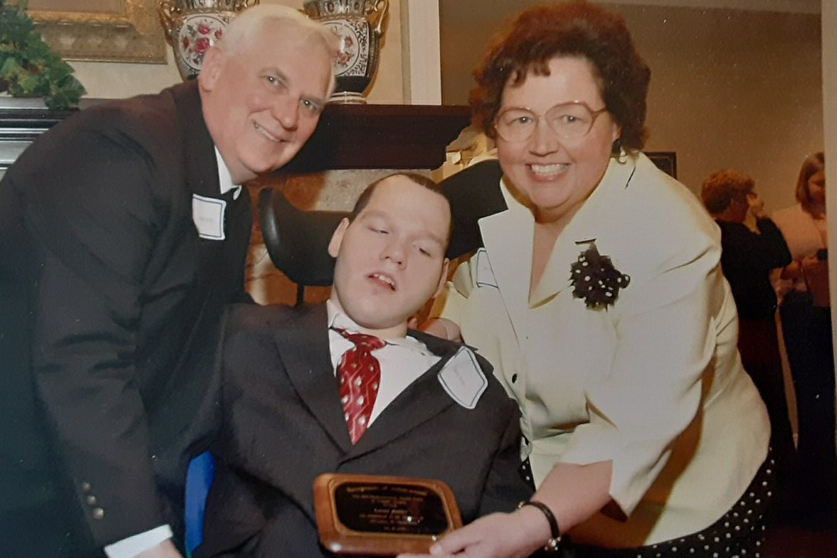
Despite being nonverbal, individuals like Lou are still aware of their surroundings. Lou has had the opportunity to attend state representative meetings with his mother, Maryann, and participates in every election. While he votes by absentee ballot with his mother's assistance, the decision is ultimately his.
Maryann and Lou have met with PA state representatives representing Phoenixville and Spring City, to highlight the need for support for people with disabilities. They emphasized that just because individuals with disabilities are not as visible does not mean they do not require support and funding.
"Our representatives at the state and federal levels need to see people with disabilities," says Maryann. "The Arc of Chester County has an advocacy group that attends various events and meets with representatives to introduce themselves. They used to have breakfast meetings to discuss what was important and what our people needed."
Maryann has been advocating for Lou throughout his life, from childhood to adulthood. She worked for 30 years designing training programs for parents on advocating for their children first at the Eastern Instructional Support Center and then at the Chester County Intermediate Unit. She also mentored parents and encouraged their involvement in advocacy.
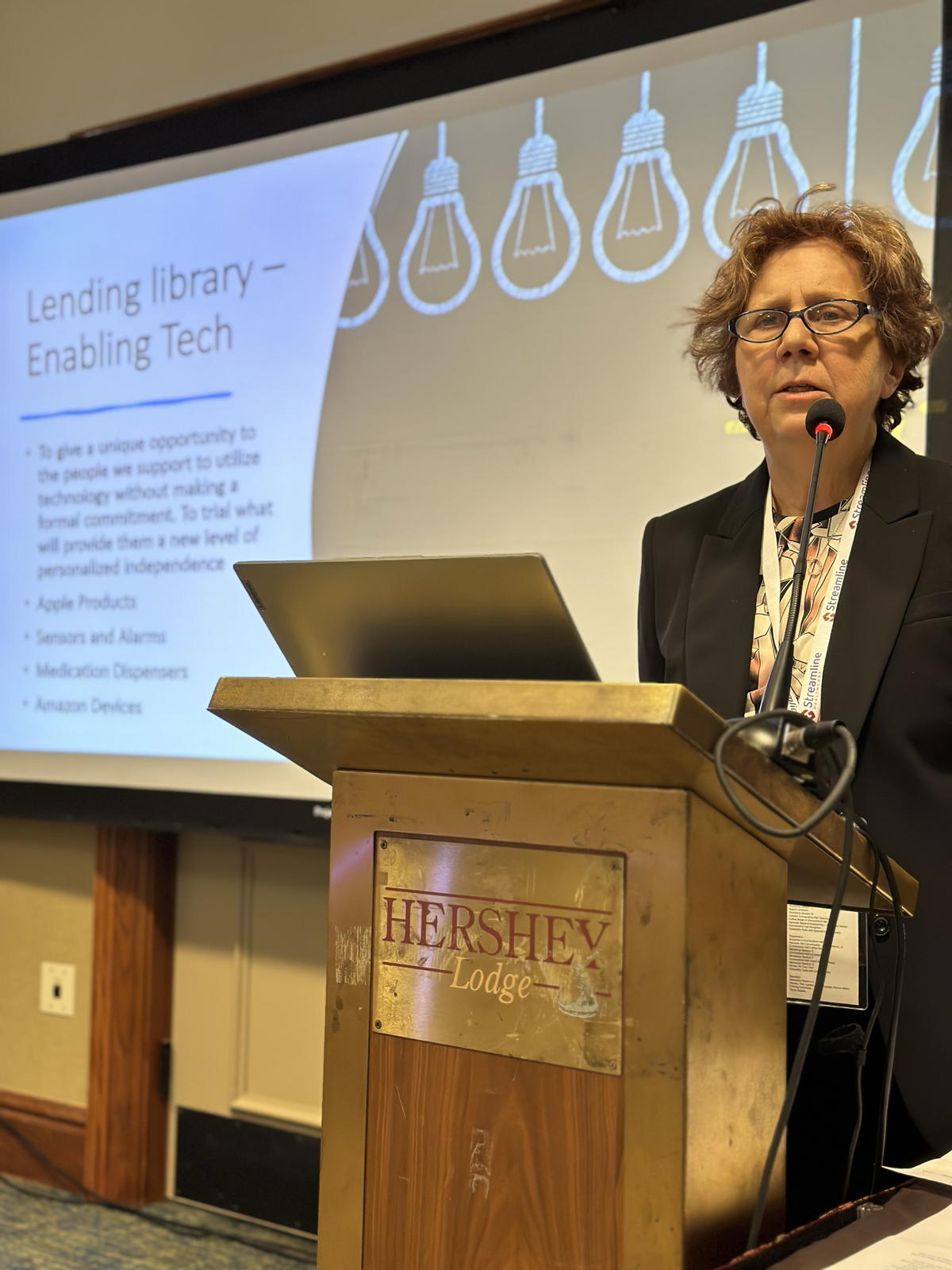
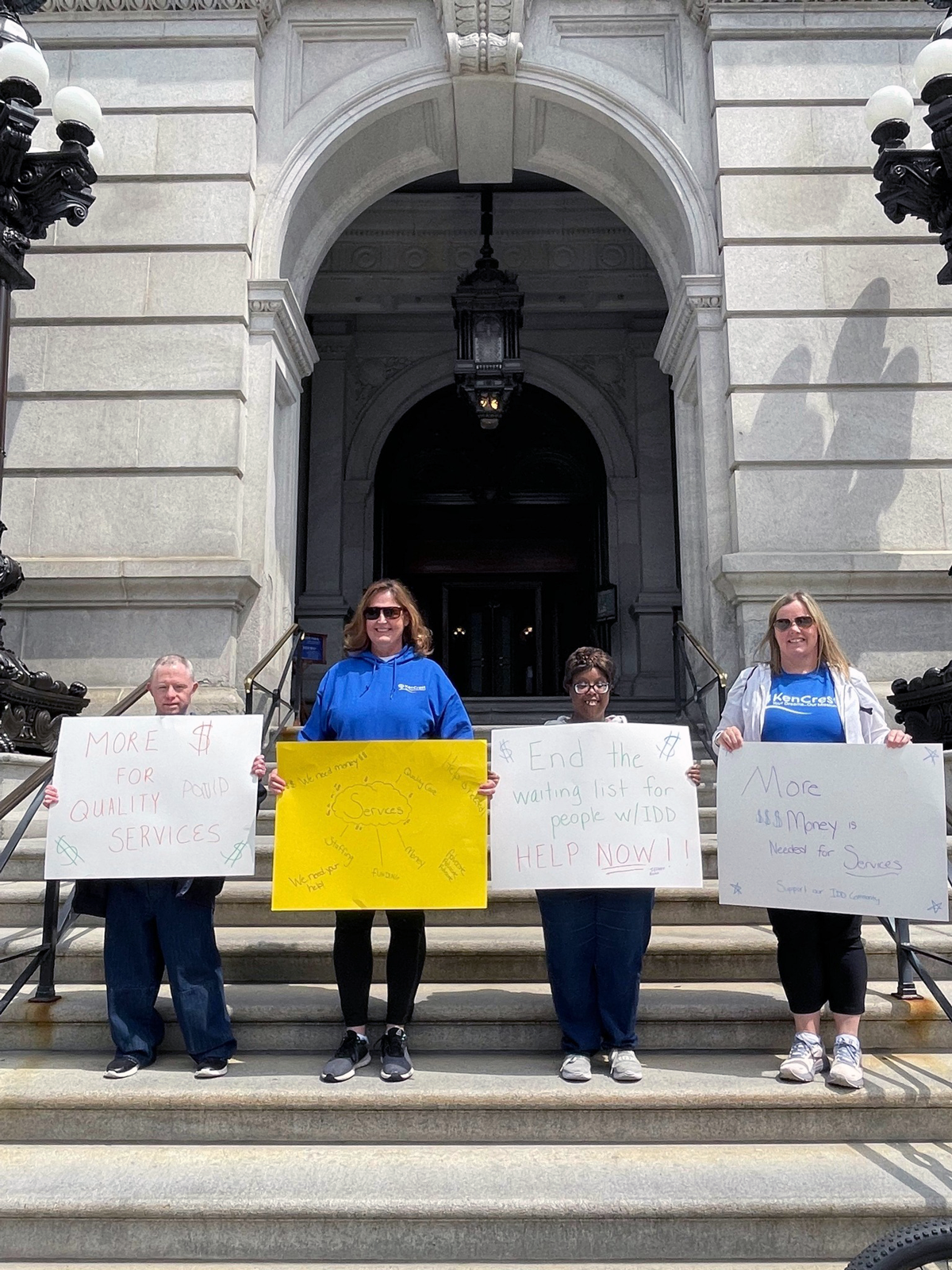
During the COVID-19 Pandemic, Lou contracted the virus and was hospitalized for ten days without any family or staff present. Maryann called the hospital daily to inquire about Lou's condition. A nurse facilitated a video call between Maryann and Lou, enabling them to communicate despite Lou's nonverbal status.
Following this experience, Lou purchased an iPad and his speech therapist facilitated Lou and his staff on its use, allowing him to connect with his family through video calls.
A few years ago, Lou's father, Louis Amici, passed away suddenly. On the day of his funeral, Lou's KenCrest staff members brought him and his housemates to attend. They sat at a table together, mirroring the typical social interactions of his twin sister.
"When you talk about living a typical life, that's it," says Maryann. "It should not be any different for anyone. Advocacy is essential to ensure necessary accommodations are made. I'm 75 years old now, and I'm still advocating."
